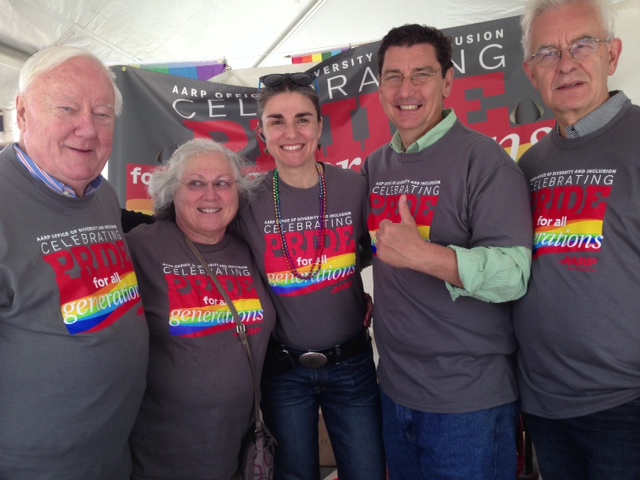AARP Hearing Center

And now, more than ever, the needs of this aging demographic are at the forefront of our minds.
The Administration on Aging reports that between 1.7 to 4 million Americans age 60 and older are LGBT. This demographic is more likely to live alone. They are more likely to have no children. And, they may have less-than-close relationships with their families. Small wonder many older gay men and women feel isolated.
The fact remains that many LGBT seniors, fearing discrimination, do not come out to caregivers. Still others opt to go without help — even when ill — rather than seeking assistance from service providers. According to a recent report, “Disparities and Resilience among Lesbian, Gay, Bisexual and Transgender Older Adults” (Fredrickson-Goldsen, 2012), more than 20 percent of LGBT older adults do not disclose their sexual orientation or gender identity to their physician. Of those surveyed, 68 percent reported that they experienced verbal harassment and 43 percent experienced physical violence.
Recognizing the need to look closer at the issues facing senior LGBT residents, the Massachusetts House has proposed a special commission to investigate and study the health, housing, financial, psycho-social and long-term care needs of older LGBT adults and their caregivers. The goal: to identify ways to meet the needs of this vulnerable and often invisible aging population.
Once approved, The LGBT Aging Commission, to which AARP has been named, will report on the funding and programming needed to enhance services to the growing LGBT population and examine best practices for increasing access, reducing isolation, preventing abuse and exploitation, promoting independence and self-determination, strengthening caregiving, eliminating disparities and improving quality of life.
It’s no secret that we are facing a coming age wave, a demographic shift that will have a profound impact on the Bay State. The time is now to prepare for the future. The time is now to make sure that the supports and services that help seniors remain in their communities are strong and inclusive of all.
Services that help our older residents remain independent and in their communities as they age are important for all — and should be available to all.































































